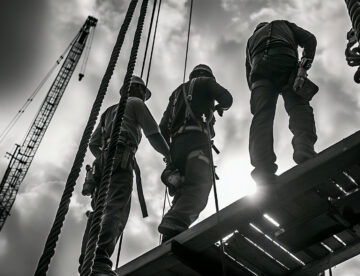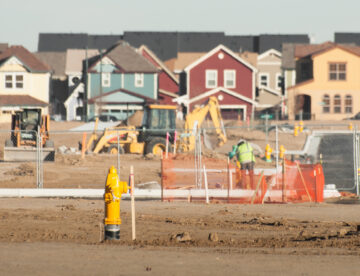
In the UK, falls from height are consistently one of the leading causes of workplace fatalities, particularly within the construction sector. This makes effective fall protection an essential part of any safe working environment. Understanding what fall protection involves and how to implement it properly helps keep workers safe and ensures sites remain compliant, efficient and productive for everyone involved.
Keep reading this week’s blog to learn more about why fall protection matters, the hierarchy of protection measures that should be deployed and how to ensure equipment such as personal fall arrest systems are used correctly on site.

With energy costs continuing to be a major concern for households across the UK, the cost of running a home is now a key factor for buyers, developers and the wider construction sector. Alongside affordability and supply, energy efficiency is playing an increasingly important role in shaping decisions about housing.
Recent research shows that new build homes are, on average, 21% cheaper to run than older properties, offering significant long-term savings for homeowners and renters. Read on to find out what’s driving this difference and what it means for the future of housebuilding.

February marks Heart Month in the UK, an annual campaign led by the British Heart Foundation (BHF) to raise awareness of cardiovascular disease (also called heart and circulatory disease) and encourage people to take steps to protect their heart health.
Heart conditions remain one of the biggest health challenges facing the nation, affecting millions of people and impacting families, workplaces and the NHS.
Keep reading this week’s blog to find out more about these conditions and what you can do this Heart Month to look after your heart and support lifesaving work.

The UK housing sector has entered one of its quietest periods in a decade. After years of fluctuating demand, many parts of the market are now experiencing a sustained slowdown in new activity, with fewer homes being started and less confidence across the development pipeline.
This matters not only to homeowners and buyers, but also to developers, contractors and the wider construction supply chain. Suppliers are increasingly warning that 2026 could become another ‘lost year’ for housebuilding unless demand begins to recover. Keep reading this week’s blog to understand what is driving these concerns and what the implications could be for the sector.
